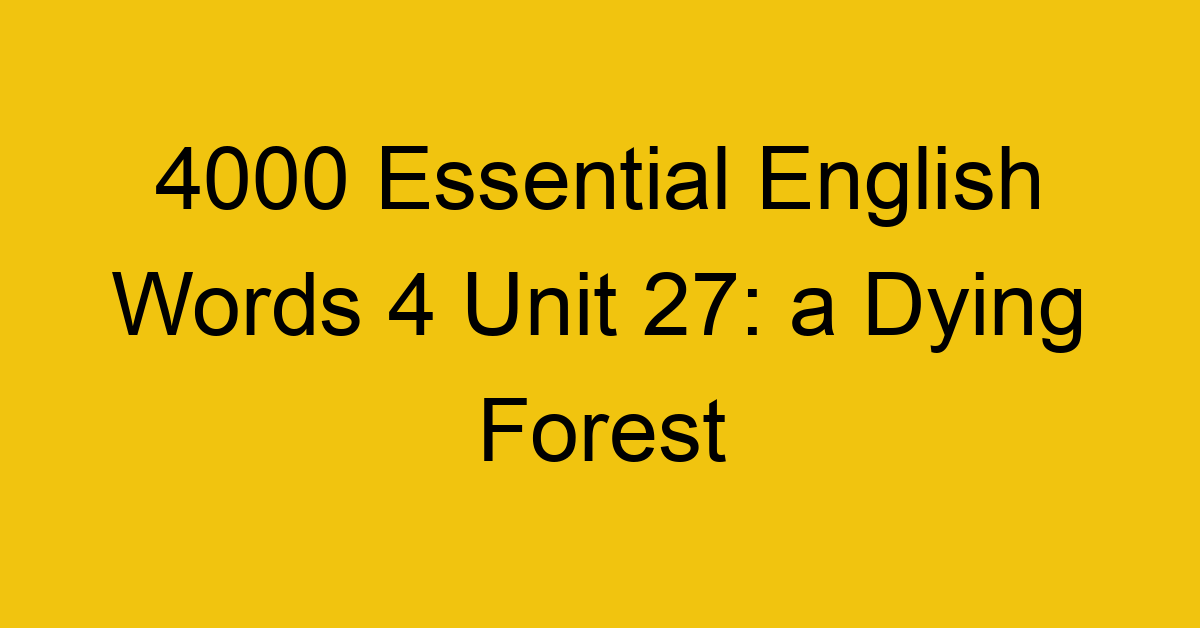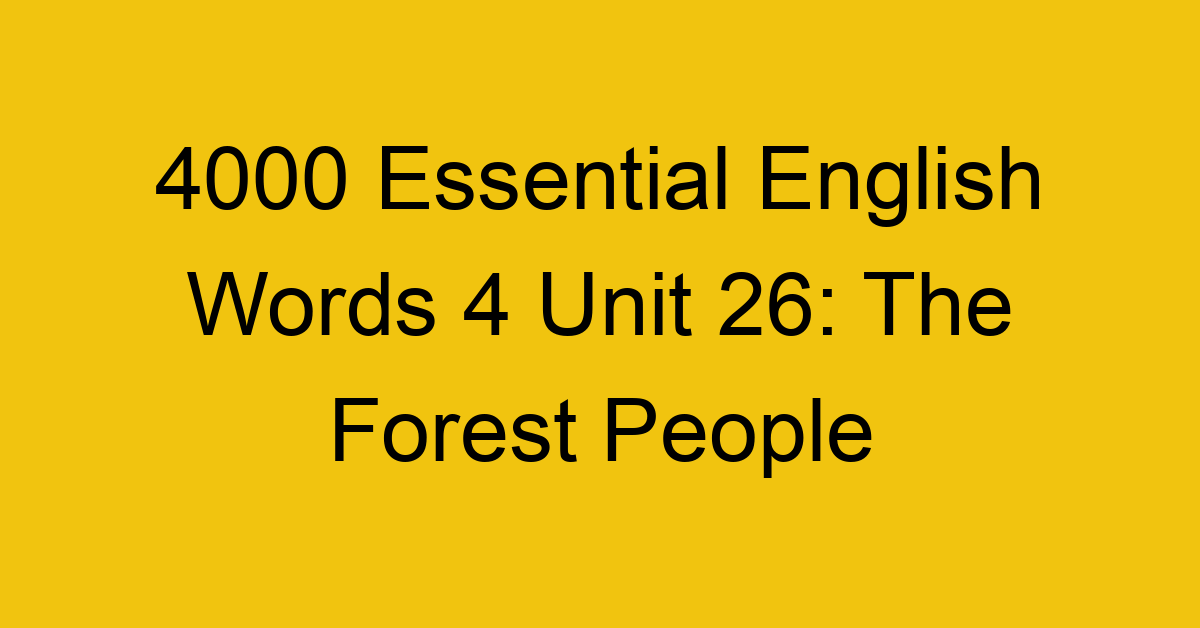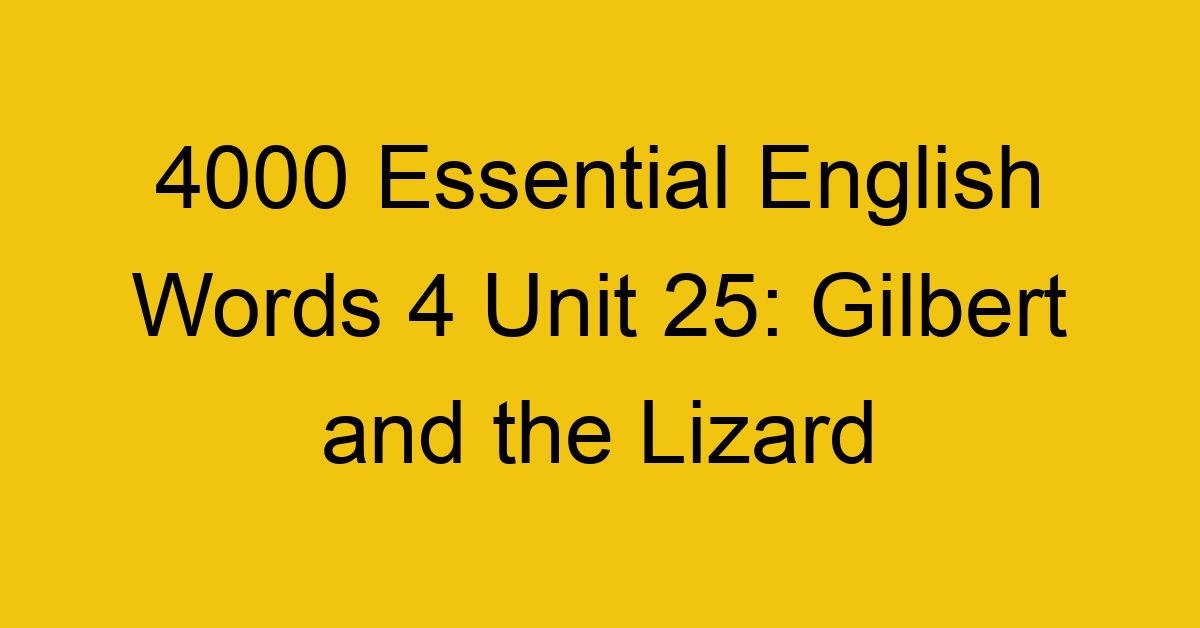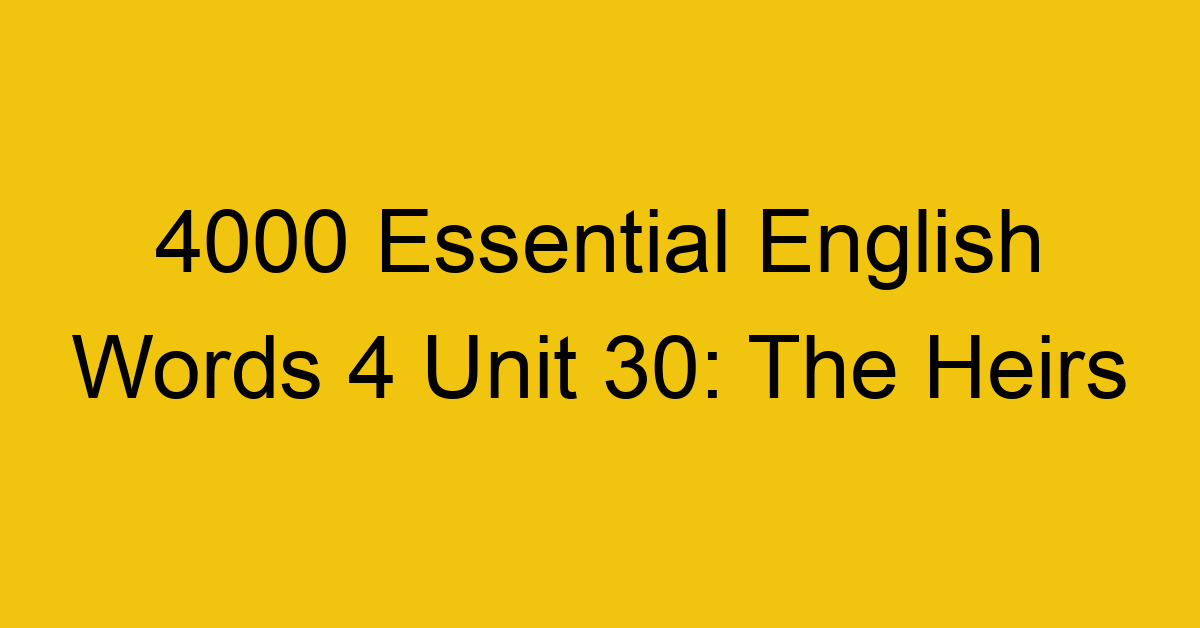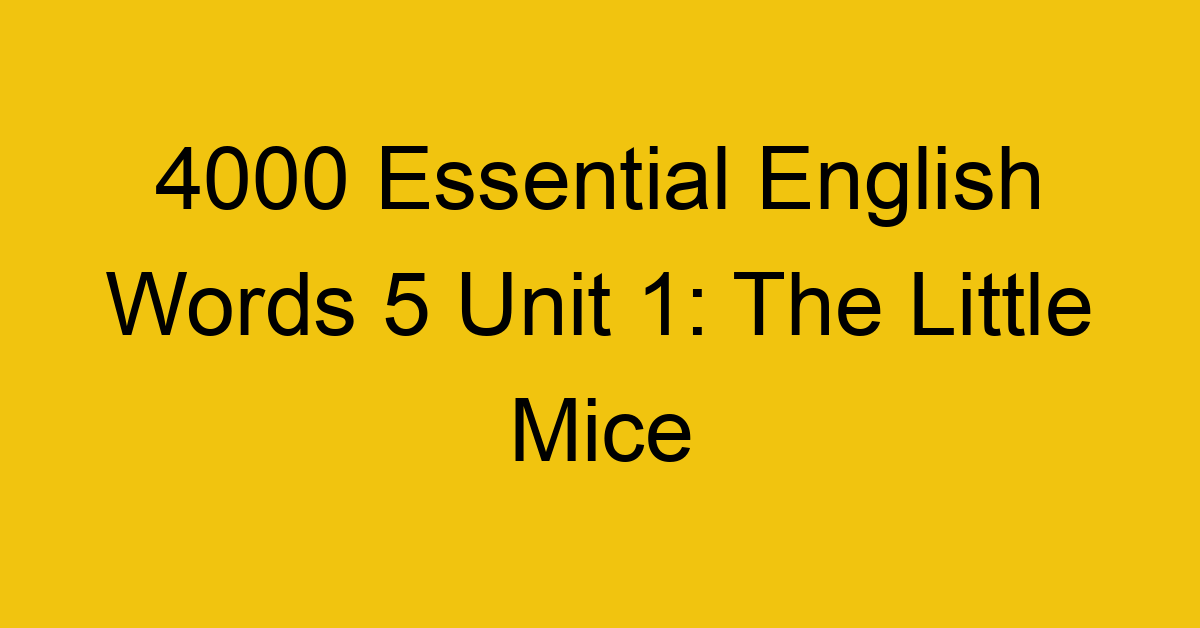4000 Essential English Words 4 Unit 28: Thucydides and the Plague of Athens
Word List
- avail [əˈveil] n.
Avail is help. It is often used in the achievement of a goal.
→ His studying was to no avail because he failed the test.
- expand [iksˈpænd] v.
To expand is to become bigger in size.
→ A balloon will expand as you blow air into it.
- define [diˈfain] v.
To define means to clearly state, show, or explain what something is.
→ People define success in many different ways.
- dread [dread] v.
To dread is to be afraid of something that could, or is going to, happen.
→ I dread the idea that I will not get into college.
- fundamental [ˌfʌndəˈmentl] adj.
If something is fundamental, it is a basic part of something.
→ The fundamental rules of basketball are easy.
- horrifying [ˈhɔ:rəfaiŋ] adj.
If something is horrifying, it is frightening and very unpleasant.
→ There was a horrifying car accident today.
- incredulous [inˈkredjələs] adj.
If someone is incredulous about something, they do not believe that it is true.
→ She was incredulous that monkeys could ever drive a car.
- linger [ˈliŋgər] v.
To linger is to last for a long time.
→ The smell of fresh cookies lingered in the bakery.
- organism [ˈɔːrgənizəm] n.
An organism is a living thing, especially a very small one.
→ We studied the organism on the microscope.
- paraphrase [ˈpærəfreiz] v.
To paraphrase is to make someone else’s writing or speech shorter.
→ The students were asked to paraphrase the story they just heard.
- plague [pleig] n.
A plague is a serious disease that quickly spreads to many people.
→ A plague in Europe killed millions of people.
- presently [ˈprezəntli] adv.
If something happens presently, it is happening right now.
→ Presently, our profits are good, but by next year we can do even better.
- random [ˈrændəm] adj.
If something is random, it happens without any pattern or reason.
→ Young children often ask random questions.
- riot [ˈraiət] n.
A riot is a crowd that reacts to bad news by violently breaking laws.
→ A riot broke out after the candidate lost the election.
- scribble [ˈskribəl] v.
To scribble is to write something quickly without caring about how it looks.
→ I scribbled a rough diagram of our plan and gave it to him.
- shrine [ʃrain] n.
A shrine is a religious building built to honor a person, event, or god.
→ He prayed at the shrine for an hour.
- solitude [ˈsɒlitjuːd] n.
Solitude is the state of being totally alone.
→ John lives a life of solitude because he doesn’t get along well with people.
- stark [stɑːrk] adj.
If a contrast is stark, then the things being compared are utterly different.
→ There is a stark contrast between their test scores.
- summon [ˈsʌmən] v.
To summon a person is to ask them to come to you.
→ We summoned the doctor as soon as we noticed she was sick.
- worsen [ˈwəːrsən] v.
To worsen is to get worse.
→ The weather suddenly worsened, and we had to stay inside.

